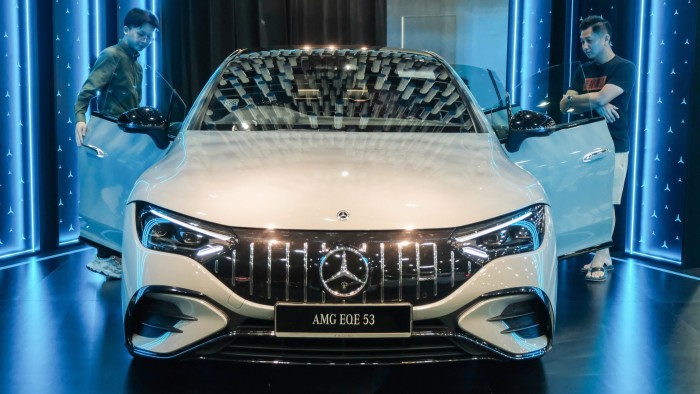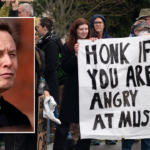Stay informed with free updates
Simply sign up to the Automobiles myFT Digest — delivered directly to your inbox.
Carmakers are making a fresh push into new hybrids and upgraded petrol engine cars as executives look to shore up profits amid the costly wait for electric vehicles to become mainstream.
General Motors, Porsche, BMW and Mercedes-Benz have pledged over the past few weeks to invest in new or upgraded internal combustion engine (ICE) and hybrid models even as they increase the rollout of electric cars to meet tougher emissions regulations in Europe and elsewhere.
Global new model launches of ICE and hybrid vehicles are expected to rise 9 per cent this year from 2024, according to S&P Global Mobility. Carmakers are expected to introduce 205 petrol models, down 4 per cent from 2024, while hybrid launches are predicted to rise 43 per cent to 116 models.

Mercedes-Benz last week revealed plans to launch 19 petrol vehicles versus 17 battery-electric vehicles between 2025 and 2027 after sales and profit margins took a hit amid the slowing growth of demand for electric cars.
“If you don’t believe that market conditions will be dominant electric in 2030 . . . it would not make economic sense to just cut off your very healthy and profitable ICE business,” its chief executive Ola Källenius told investors.
Porsche, which suffered a 49 per cent decline in sales of its electric Taycan sedan last year, is also having second thoughts about its EV strategy. This month, the luxury-car maker announced it would overhaul its future line-up and plough €800mn into developing new combustion engine and hybrid vehicles.
Legacy carmakers are having to confront the cost of investing in future electric and hybrid vehicles while maintaining combustion engine technology for longer than expected.
Hybrids, which combine batteries with an internal combustion engine, are highly profitable and attractive for carmakers amid rising consumer demand and the need to cut emissions. The EU’s 2025 rules require that each carmaker must cut its overall emissions by 15 per cent compared with a 2021 baseline. Brussels is also set to ban sales of new petrol and diesel cars from 2035.
Carmakers are asking for flexibility in the emissions rules and the 2035 ban, with BMW calling for the ban to be cancelled.
In recent weeks, Volvo Cars, Mercedes-Benz and Renault have all projected lower profits this year amid risks from a global tariff war as well as the costs of meeting tougher emissions standards — making it harder to abandon the higher profits from petrol and hybrid vehicles.
“We are moving fast on the EV side, but we’re not slowing down on the ICE side either,” said Renault chief executive Luca de Meo. “Getting the EVs to be a dominant technology in Europe is a journey that will last 20 years.”
While EV sales growth has slowed in Europe, demand has surged in China, where electric and hybrid vehicles accounted for 47 per cent of sales last year — up from just 6 per cent five years ago, according to Shanghai-based Automobility.

Electric vehicles are more expensive to produce than petrol vehicles because of the high cost of batteries, meaning that car companies still make lower profit margins on EVs.
Mercedes-Benz chief financial officer Harald Wilhelm said the group was bringing the cost of EVs down by more than 15 per cent. This would narrow the cost difference compared with combustion engine cars, but Wilhelm added that when it came to closing the gap “we don’t want to promise things we cannot do”.
Europe’s largest carmaker Volkswagen is no longer certain of its plan to stop selling petrol cars in Europe by 2033, according to one person familiar with the discussions. “It would be stupid [to stop selling combustion engine cars] if our customers want them,” the person said.
In the US, General Motors has also been refreshing its ICE models.
While its share of US EV sales rose from 6 per cent to 9 per cent last year on the back of demand for its all-electric Chevrolet Equinox, its executives have warned that growth in the overall market will probably slow after US President Donald Trump signalled the end of consumer subsidies for EVs.
“I think we can have a scenario where ICE profitability, ICE cash flows can continue on for longer than they otherwise might,” said GM chief financial officer Paul Jacobson at a Barclays conference last week.
Additional reporting by Ian Johnston in Paris







